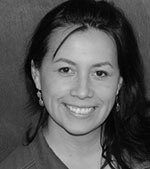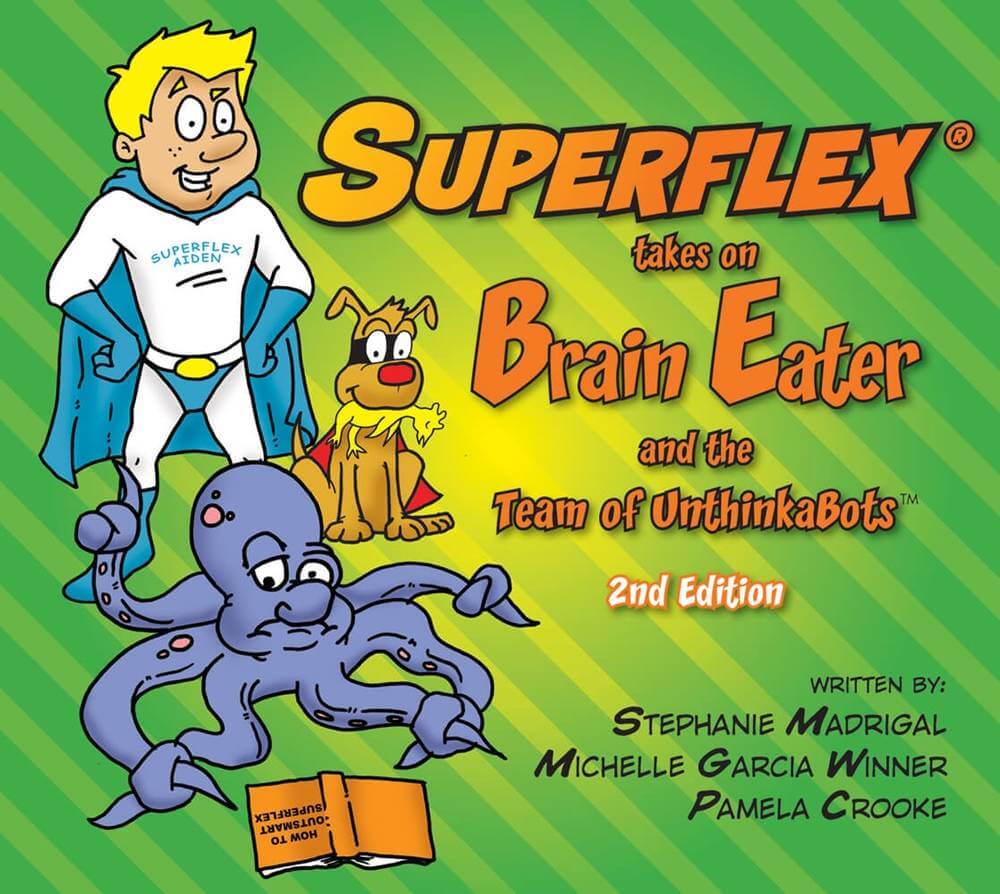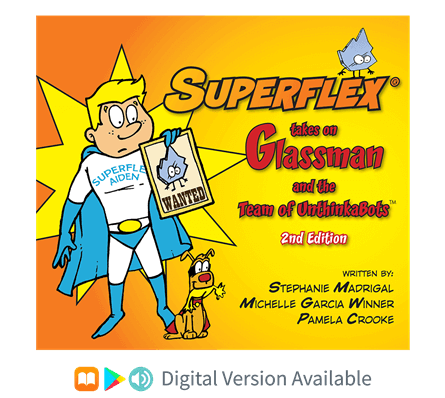
Madrigal, Stephanie, MS, CCC-SLP
Stephanie Madrigal is a speech-language pathologist and senior therapist at the Social Thinking Center. She has worked alongside Michelle Garcia Winner since 2003. She graduated in 1993 with a BA degree in Speech Pathology and Audiology from San Jose State University and completed her MA degree in Speech Pathology from the same university in 1995.
Known for her warm, friendly rapport with her students and their families, Stephanie runs Social Thinking groups for a variety of ages of clients with social cognitive deficits, develops therapeutic and educational products related to teaching Social Thinking, and conducts Dynamic Social Thinking Assessments with clients ranging from five years old to adults. She was instrumental in developing and implementing an Internship Certification Program servicing educators around the world, conducts trainings to enhance and implement social cognitive teachings in school districts in the San Jose area, provides intensive training to educators participating in the Social Thinking Center’s three-day Mentor Program, and conducts workshops for parents and educators on topics related to Social Thinking.
A creative therapist who infuses humor and fun into teaching, Stephanie co-authored, with Winner, Superflex: A Superhero Social Thinking Curriculum (2007) and has continued to co-author related Superflex comic books: Superflex Takes on Glassman and the Team of Unthinkables (2009), and Superflex Takes on Brain Eater and the Team of Unthinkables (2012). Educators and parents have praised Superflex and “the power of this cartoon character,” who when paired with the Social Thinking curriculum, teaches students to build their own superflexible thinking skills to overcome the thoughts that are causing them trouble. Comic books on other Unthinkables are in the works.
To read more about Stephanie, visit www.socialthinking.com
Informal Dynamic Social Thinking Assessment and Core Treatment Strategies for Home and School
This workshop is designed to help parents and professionals better understand the inner minds of individuals with social learning challenges. We introduce the Informal Dynamic Social Thinking Assessment, a tool described in Michelle’s book, Thinking About YOU Thinking About ME, 2nd Edition. IDST assessments are not only useful as part of the initial or three-year testing process. Instead, this type of assessment can be done on an ongoing basis to gauge students’ abilities and needs across time. The IDST is invaluable in learning more about the way our children/students think, and how their social thinking deficits affect them. This, in turn, illuminates why they need direct teaching of social concepts and arms us with relevant knowledge to determine specific treatment strategies that are best aligned with their needs. Video clips of the informal assessment will demonstrate ways in which all of us (diagnosticians, parents, paraprofessionals, treatment clinicians, etc.) can work more effectively with this population.
This is a day filled with very practical information! In the afternoon, participants will learn about Social Behavior Mapping. SBM is a visual teaching strategy which demonstrates how doing what is “expected” or “unexpected” in specific social situations impacts how those around us feel about our behaviors and how that, in turn, impacts how they treat us, and ultimately how we feel about ourselves. This technique is now widely embraced as a core Social Thinking concept used for all students. Rounding out the day, basic concepts and ideas will be presented for running Social Thinking groups as well as specific teaching strategies that help make the abstractions of the social world more concrete! We will delve into how we make friends, distinguishing between:
1) “being friendly,”
2) developing a friendship
3) having a “bonded friend.”
We will discuss how conversational skills are only one component to keeping friends; “hanging out” actually means we share space without necessarily talking! Parents and professionals give high praise for the practical nature of this workshop. Information presented concentrates on students with near normal to far above normal verbal intelligence (verbal IQs above 70). Most strategies focus on school-age children and adults, although the information is helpful for those living and working with younger children.
Objectives:
1. Participants will be able to describe how to assess “thinking with your eyes” and how this is different from identifying what some one is looking at.
2. Participants will be able to describe the core components of the “Double Interview” and explain how it helps assess perspective taking.
3. Participants will be able to describe how to fill out each of the four columns on Social Behavior Maps.
4. Participants will be able to describe the Four Steps of Communication as a primary component to assessing and treating social skill deficits.
5. Participants will be able to define at least three different stages of making friends and how to teach students to advance from one stage to the next.
6. Participants will discuss how to teach nonverbal ways of maintaining a friendship when peers “hang out”.
Visit Madrigal, Stephanie's website.



